Notes
This article includes a list of references, related reading, or external links, but its sources remain unclear because it lacks inline citations .(July 2013) |
| Put Yourself in His Place | |
|---|---|
| Directed by | Theodore Marston |
| Written by | Theodore Marston |
| Starring | William Garwood Marguerite Snow |
| Distributed by | Thanhouser Film Corporation |
Release date |
|
Running time | 2 reels |
| Country | United States |
| Languages | Silent film English intertitles |
Put Yourself in His Place is a 1912 American silent short drama based on an 1870 English novel by Charles Reade. The film was adapted and directed by Theodore Marston, and stars William Garwood and Marguerite Snow in the lead roles.
The story is of an English manufacturing town ("Hillsborough", based on Sheffield) in which Henry Little, a worker and inventor, is persecuted by trade unions, jealous because he was better trained than his fellows. Squire Raby, Little's uncle, is a forcible character, and a pleasant love story offsets the labor troubles. A purpose of the novel was to expose, without censure, the errors of early trades unions.
This article includes a list of references, related reading, or external links, but its sources remain unclear because it lacks inline citations .(July 2013) |

Walter Map was a medieval writer. He wrote De nugis curialium, which takes the form of a series of anecdotes of people and places, offering insights into the history of his time.
This article contains information about the literary events and publications of 1905.
This article contains information about the literary events and publications of 1894.
This article contains information about the literary events and publications of 1870.
This article contains information about the literary events and publications of 1800.
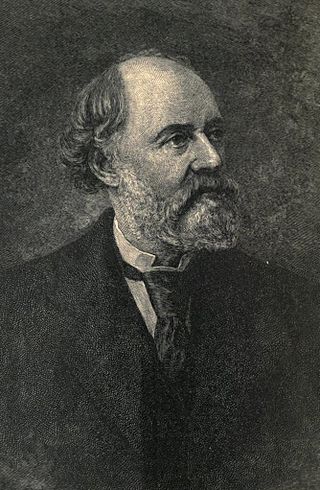
Charles Reade was a British novelist and dramatist, best known for The Cloister and the Hearth.
Harriet Lee was an English writer and novelist, born in London in 1757, and died near Bristol at Clifton, England, on August 1, 1851. Her father, John Lee, was an actor and theatrical manager who died in 1781, her mother, name unknown, was also an actress. Additionally, she was the sister of Sophia Lee (1750–1824), a notable dramatist.
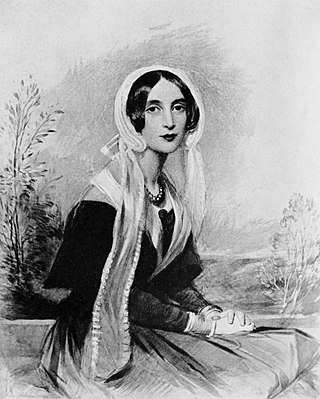
Sara Coleridge was an English author and translator. She was the third child and only daughter of the poet Samuel Taylor Coleridge and his wife Sara Fricker.
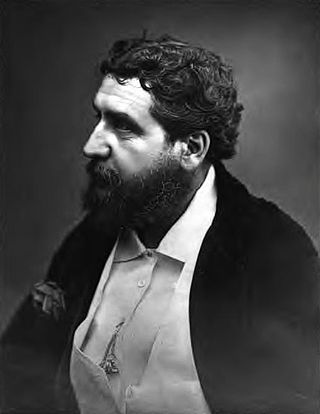
Edward James Mortimer Collins was an English novelist, journalist and poet. Some of his lyrics, with their "light grace, their sparkling wit and their airy philosophy", were described in the 1911 Encyclopædia Britannica as "equal to anything of their kind in modern English".
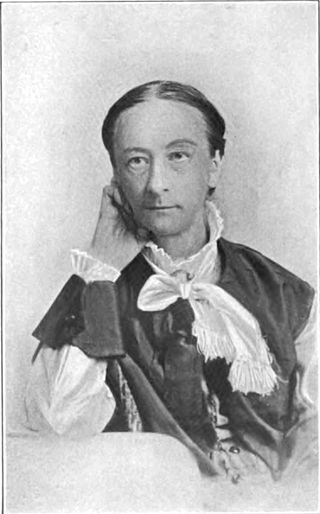
Susan Bogert Warner was an American Presbyterian writer of religious fiction, children's fiction, and theological works. She is best remembered for her massive bestseller The Wide, Wide World. Her other works include Queechy, The Hills of the Shatemuc, Melbourne House, Daisy, Walks from Eden, House of Israel, What She Could, Opportunities, and House in Town. Warner and her sister, Anna, wrote a series of semi-religious novels that had extraordinary sales, including Say and Seal, Christmas Stocking, Books of Blessing, and The Law and the Testimony.
Edward Walsh was an Irish poet, the son of a sergeant in the Cork militia, and was born in Derry City, where his father's regiment had been sent for training. His parents were natives in the village of Millstreet, County Cork, near which his father at one time possessed a small holding.

Charles Paul de Kock was a French novelist. Although one of the most popular writers of his day in terms of book sales, he acquired a literary reputation for low-brow output in poor taste. In 2021 Brad Bigelow wrote: "Today, if we set aside over-priced print on demand reprints of his ancient editions, the works of Paul de Kock haven't seen a new English edition in at least a century."
Thomas Fitzherbert was an English Jesuit.

Augusta Jane Wilson, was an American author of Southern literature and a supporter of the Confederacy during the American Civil War. Her books were banned by the American Library Association in 1881. She was the first woman to earn US$100,000 through her writing.

Amelia Edith Huddleston Barr was a British novelist and teacher. Many of the plots of her stories are laid in Scotland and England. The scenes are from her girlhood recollection of surroundings. Her works include, Jan Vedder's Wife, A Border Shepherdess, Feet of Clay, Friend Olivia, The Bow of Orange Ribbon, Remember the Alamo, She Loved a Sailor, A Daughter of Fife, The Squire of Sanddal Side, Paul and Christina, Master of His Fate, The Household of McNeil, The Last of the Macallisters, Between Two Loves, A Sister to Esau, A Rose of a Hundred Leaves, A Singer from the Sea, The Beads of Tasmer, The Hallam Succession, The Lone House, Christopher and Other Stories, The Lost Silver of Briffault.
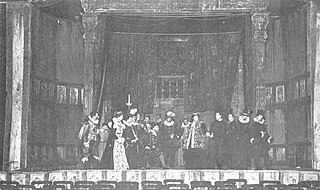
William Poel was an English actor, theatrical manager and dramatist best known for his presentations of Shakespeare.
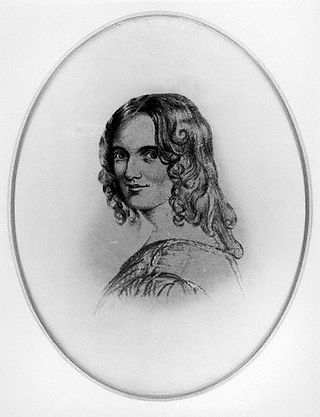
Sarah Fuller Flower Adams was an English poet and hymnwriter. A selection of hymns she wrote, published by William Johnson Fox, included her best-known one, "Nearer, My God, to Thee", reportedly played by the band as the RMS Titanic sank in 1912.
William Henry Anderdon was an English Jesuit and Catholic writer, born in London.
Henry Herman was an English dramatist and novelist.

Jennette Barbour Perry Lee was an American writer and academic. Born in Connecticut, she began to teach at a local school in her teens. She graduated from Smith College in 1886 and started teaching English at the college level shortly thereafter. Lee published numerous novels and short stories, many of which featured characters from New England.